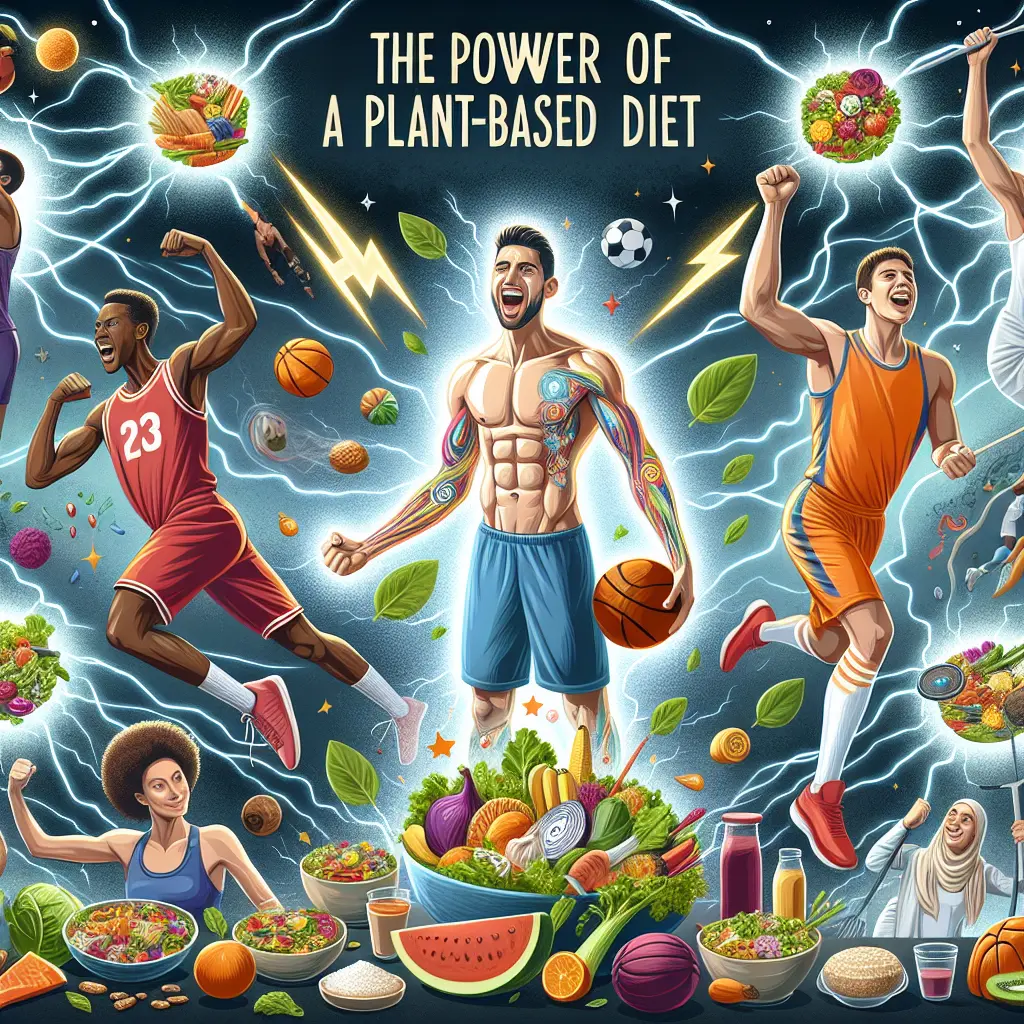
In recent years, sports nutrition has seen a notable shift towards plant-based diets as athletes explore new strategies to enhance their performance and overall health. This transition is driven by the numerous benefits associated with plant-based nutrition, including improved endurance, accelerated muscle recovery, and increased stamina. Let’s delve into how these benefits can translate into superior sports performance.
Optimizing Athletic Performance with Plant-Based Nutrition
Plant-based nutrition is central to optimizing athletic performance. According to top nutrition scientist and gut health expert Dr. Tim Spector, a well-rounded diet often negates the need for supplements. Emphasizing whole foods, abundant in plant-based diets, is crucial as they provide essential nutrients.
Athletes require sufficient protein for muscle growth and repair. A visual guide by nutritionists highlights that plant-based proteins like legumes, nuts, and seeds can effectively meet these needs, promoting muscle recovery and growth.
Plant-Based Diets and Endurance Sports
For endurance athletes, plant-based energy sources offer significant advantages in terms of stamina and prolonged physical output. Complex carbohydrates from whole grains, fruits, and vegetables are vital for maintaining energy levels during intense activities. Additionally, high-fiber foods, recommended by a cancer dietitian, support digestive health, enhancing overall performance.
A 2024 study also highlights the environmental benefits of plant-based diets, reducing greenhouse gas emissions by 17%. This dual advantage appeals to environmentally conscious athletes.
Muscle Recovery and Vegan Diets
Muscle recovery is pivotal in any training regimen. Plant-based diets rich in antioxidants and anti-inflammatory compounds help reduce muscle soreness and accelerate recovery. Foods like berries and leafy greens are particularly beneficial for joint health, as dietitians recommend.
Recent findings on fish oil and heart health suggest omega-3 fatty acids, crucial for recovery, can also be sourced from flaxseeds and walnuts, making them accessible to vegan athletes.
The Role of Plant-Based Diets in Strength Training
Strength training requires nutrients essential for muscle building and recovery. Plant-based diets offer iron and calcium from fortified foods and dark leafy greens, crucial for muscle strength. Strategic plant-based meal planning ensures athletes meet energy demands effectively. Incorporating tryptophan-rich foods with carbohydrates can also enhance sleep quality, aiding recovery.
Plant-Based Diets for Runners
Runners gain significantly from plant-based diets due to their high carbohydrate content, providing fuel for long-distance runs. Foods like sweet potatoes, bananas, and quinoa supply the necessary energy. Moreover, the focus on whole foods aids in maintaining healthy weight and reduces chronic disease risk.
Research indicates plant-based diets can help manage diabetes through antioxidant-rich vegetables like broccoli and spinach, stabilizing blood sugar levels and enhancing running performance.
Navigating Plant-Based Performance Enhancement
Transitioning to a vegan diet involves understanding the nuances of plant-based performance enhancement. While the benefits are clear, it’s important to avoid common pitfalls associated with eliminating ultra-processed foods. Dietitians advise focusing on wholesome options rather than obsessing over food exclusions.
Plant-based diets align with sustainability trends, offering environmental benefits alongside performance enhancement. By choosing plant-based options, athletes contribute to reducing their carbon footprint while optimizing health and performance.
Conclusion
The advantages of a plant-based diet extend beyond athletic performance; they encompass overall well-being and environmental sustainability. By embracing plant-based nutrition, athletes can harness the power of nutrient-dense foods to enhance endurance, support muscle recovery, and achieve peak physical performance. As research continues to evolve, integrating plant-based diets into sports nutrition becomes increasingly compelling for both professional athletes and fitness enthusiasts alike.
For more insights into optimizing your diet for athletic performance with plant-based nutrition, consider consulting reputable sources like NutritionFacts.org or the American Dietetic Association. Share your journey or experiences with plant-based diets in the comments below. Together, let’s explore how these nutritional choices can transform not just performance but our overall well-being.
Here's to fueling your passion with plant power!
Isabella Warner